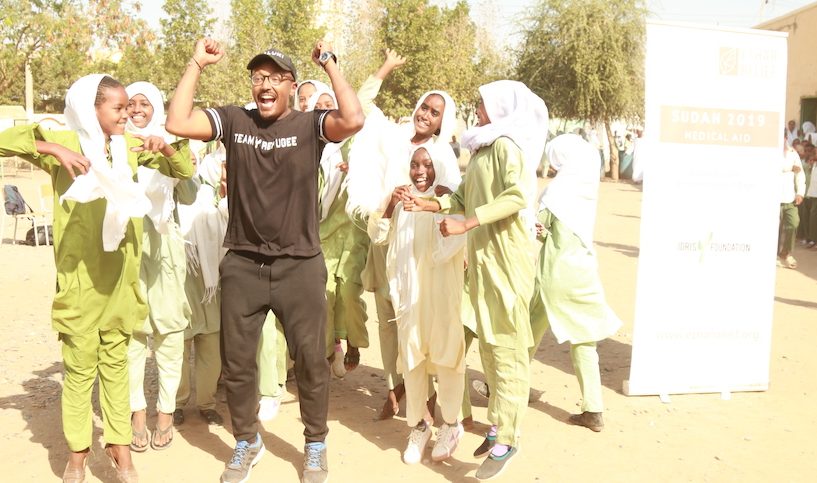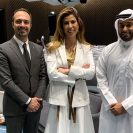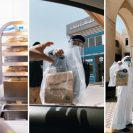When the Yassin siblings were organizing their father’s estate after his sudden and untimely death six years ago, they discovered that he was funding an orphanage in the refugee camps in Sudan. Imad, Suzie, Suha, Sahar and Jamal were taken by surprise when they found out about their late father’s philanthropic work. Curious, the family decided to visit the camps and learned that there were more than 300 thousand people living in the East of Sudan as refugees. Out of sadness, hope was born, as they decided to start the Idris Yassin Foundation in his name to carry on his work. The original orphanage is now home to more than 300 children, and since then, the foundation established more than nine schools. We spoke to Imad Yassin who told us more about the project.
What kind of programs does the foundation run?
We focus primarily on health an education, so far, we have nine schools that we provide books, uniforms, furniture for, and collaborate with Ethar Relief our partner to deliver water and food to these schools. Health-wise, we are collaborating in the building of a hospital in Shagarb Refugee camp. In addition to that, we have helped restore sight to over 281 refugees who needed cataract operations. During the out-break of Chikungunya last October we provided mosquito nets, medical support and sprayed large regions with repellents to stop the spread of the disease.
You were recently in Kuwait screening a documentary about your activities. Why did you decide to make a film?
I have an old passion for movie making and I was speaking to one of our trustees, Mr. Ayman Fakoussa, who said look it is important for people to see progress so I decided to take the footage from all of our trips in the last two years and make a documentary. So far, we are doing only private screenings, and have conducted screenings in Barcelona, Manama and Kuwait City. We will be showing it in Dubai, Beirut and London next.

Your vision statement on the website mentions the use of technology and advances in education and health to help refugees. Could you explain what kind of technology you are using?
We’ve managed to build the first digital class room in the camps, and our plan is to allow for volunteers who wish to teach to do so from the comfort of their own home and therefore creating an abundance of resources. You don’t have to travel or take time off work to serve students. We also attempted to use drones for the delivery of medicine. During the rainy season, it’s hard to navigate the roads but flying drones in high security areas like refugee camps put this project on hold.
Girls and women are always a huge part of the solution, how do you empower women and girls to help their communities?
Absolutely, we believe very strongly in the empowerment of girls/women, we have not only built secondary schools and made dreams come true for girls wishing to go to university but we also have many projects for women empowerment by providing them with facilities, funding and equipment to create businesses so they can become independent. Girls score the highest grades in all of our schools.

What kind of educational programs do you offer? Is it basic education or also vocational training so people can work?
We have, as I explained, schools that were built from scratch like Future school, but we have supported existing schools to thrive Like Aydoon and Alnidal that have been barely surviving since the 1980s. We also realized how important it is to provide training for teachers, and we have been running regular programs to get the teachers to deliver the best education possible. This made a big difference in the schools ranking.
Are all of your employees unpaid volunteers? How do you manage that?
All of us are volunteers in the Idris Foundation, which is amazing! It’s a global movement, we have people all the way from New York to Melbourne. Each comes with their own unique set of expertise. This helps us get as much of the funding delivered to the hands of those in need. We use all the latest technology to communicate and keep track of progress. We have annual reports that show progress of what we have been delivering and our partners send us regular updates on the work we do together

Are all of your projects in Sudan or do you also operate in other locations? Why Sudan specifically?
Yes, we do, Sudan, Yemen, Djibouti and even in Lebanon with Syrian refugees. Our work mostly happened in Sudan to start with because my father originally is Eritrean, and there are more than 300,000 Eritrean refugees who are forgotten in these camps since the 80s.
What has been the most challenging thing so far? What is the hardest thing when operating a charity organization?
The most challenging aspect is that you always have to start from the beginning. When we first started Idris Foundation we wanted to immediately build digital class rooms, but then we realized the kids were hungry, so we had to find charities that provide food like Ethar Relief and feed them. After that we had to make sure that they had a seat, table, uniforms and books before we can get to where we wanted. Operations-wise, the hardest challenge is always timing, because we want everything done yesterday and things do take time if you want to do them right.
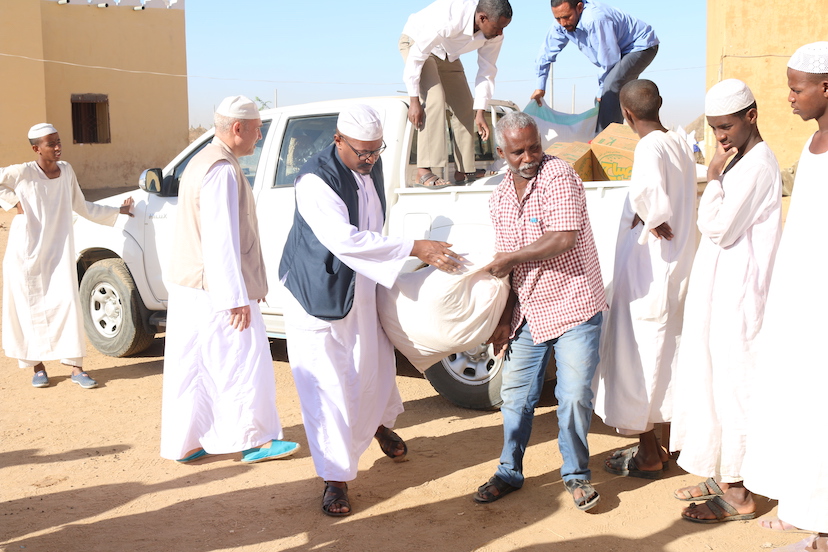
What part of the project are you most proud of? What is your favorite success story?
Building the first secondary school for girls three years ago and having our first group of orphan refugee girls dream come true and enter university too. [Building] Future Secondary School, which you can see in the documentary, we are planning to build a second floor.
How can people help the foundation? Do you accept volunteers or where can people send funds? How can people help if they can’t give money or volunteer?
We have over 20 people working in Idris Foundation without monetary compensation. In addition to that, hundreds of friends and families continue to help globally. I am part of Singularity University in California and we believe a Billionaire is someone who can impact a Billion people’s lives positively.
We have regular observation trips to the camps which we take volunteers and supporters with us. We have had many from the Middle East and Europe visit. We collect money via Ethar Relief our partner and we authorize the spend per project. This way we can make sure all the funds are only used for the projects we believe in. You can even select which projects your funds go to, Health or Education.
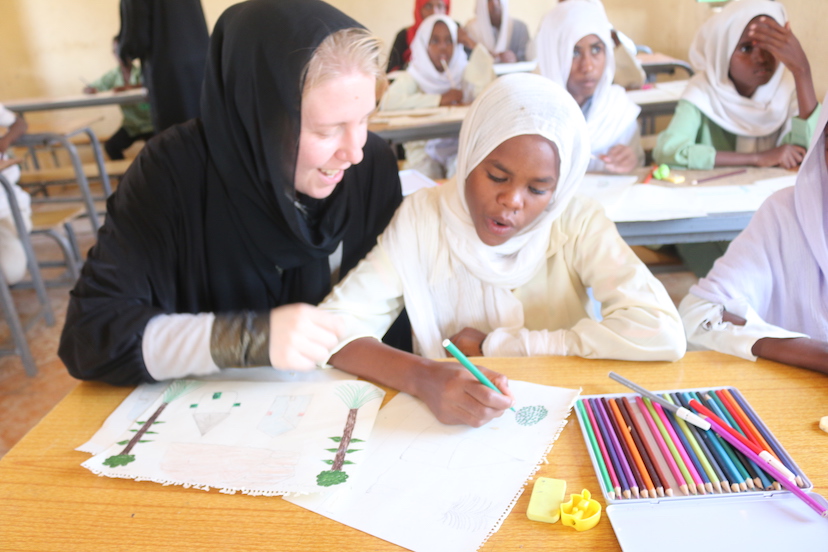
What would you like to tell people who think of helping others?
I believe in the power of attraction and the need of all of us as humans to lead a purposeful life, since we started this project a tribe of amazing people started to form to make it happen. If you truly want to make a difference start today and you will see how quickly people will come to your aid.
For more information, follow Idris Foundation on Instagram @idrisfoundation or visit their website. To donate visit Ethar Releif. Featured image courtesy of Imad Yassin.

